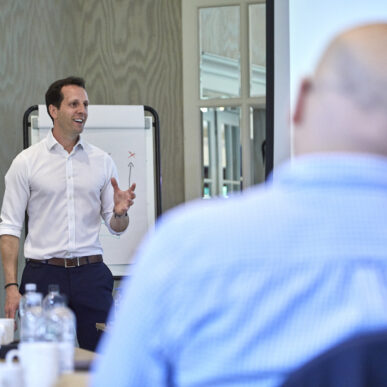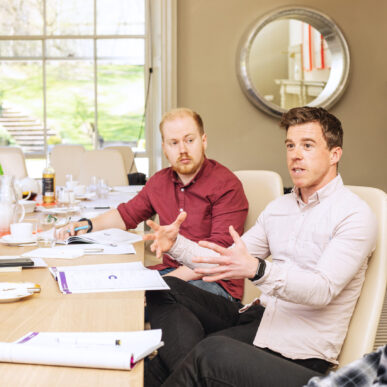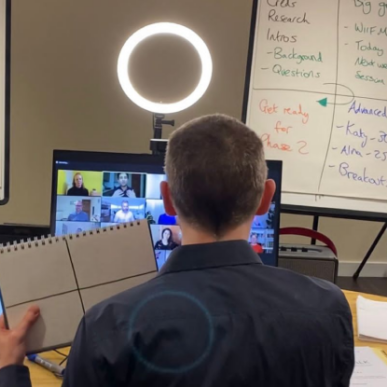‘Emphasis on one bad experience overwhelms the positive effect of ten instances going very well‘
You Can’t Control Results. You Can Control How You Feel About Results.
We lost.
The hopes and dreams of the England team and millions of football fans were thwarted by a high-stakes penalty shoot-out.
Tears fell, disappointment and heartbreak were shared as we missed the opportunity to win our first major tournament in 55 years.
Sofa pundits on social media were quick to diagnose what went wrong: Grealish should have come on sooner. We lost pace in the second half. It was unwise to expect Rashford and Sancho to take a penalty when they had only been on the pitch for two minutes. Imagine the pressure on 19-year-old Saka. Too much to bear for one so young?
Watching with my family, we had hoped to rub the lamp of the genie of good fortune by coming together to recreate the 1966 final when my husband was watching as a baby in his mum’s arms. Something must have gone wrong because the wishes granted were all in Italy’s favour as we missed 3 penalties in a row.
WHAT DID I DO WRONG?
Post-match, as emotions ran high and disappointment was palpable, I was reminded of something we share as a key factor of our coaching at Body Talk. Something simple yet powerful: Don’t dwell on what went wrong, focus on what went right.
The point is too often the negative sits front and centre of our mind when we don’t get the result we want. An interview with no offer of the job, a client who chooses a competitor, a failed exam or … a missed penalty. Instinctively we ask the question, ‘What did I do wrong?’
I’ve watched many clients deliver presentations during training sessions. Often, as soon as they’ve finished, they’ll tell me, ‘That was awful. I mucked it up; I forgot what I was saying, I’m terrible at this’.
The England football players may have had similar thoughts. ‘I’ve let everyone down, I missed a penalty, I didn’t make the most of the opportunity’
NEGATIVITY BIAS
Studies have shown we all do this a lot; it’s even been given a name – negativity bias. It describes how we think more about what went wrong than what went right. You’ll understand the grip this kind of negative thinking has on our emotions when I tell you about the findings of the research into this negativity black hole. The startling fact is emphasis on one bad experience overwhelms the positive effect of ten instances of something going very well.
Social psychologist Roy Baumeister, together with New York Times writer John Tierney, has written a book about this negativity bias titled, “The Power of Bad: How the Negativity Effect Rules Us and How We Can Rule It.”
Take it from me, it’s a great read chock full of strategies to help you overcome negativity in business or personal relationships and stop your brain from fixating on the bad stuff. Instead of obsessing about what’s wrong in your life, you can see how much is going right.
And this is good advice.
WHAT WENT WELL?
For England, there’s a long list of things that went well.
They made it to an international final for the first time in 55 years. It was joyful to watch beautiful, skilful football being played. Jordan Pickford saved two penalties. Away from football, Marcus Rashford continues his campaign to end child poverty and Raheem Stirling has created a charity to help disadvantaged youngsters.
Former Captain Rio Ferdinand said, “They have brought us a joy that definitely my generation and below have never felt watching an England team. They lifted the country up when we needed it”
And right now, they will need to hear this. Looking at Twitter the morning after, it’s heartbreaking to see so much negativity hurled at the England team. There is plenty of positivity too, but as mentioned above our brains have become conditioned to focus on the bad stuff. It’s not healthy, and it’s not productive.
CONTROL HOW YOU FEEL ABOUT BAD RESULTS
Of course, we need to acknowledge the bad stuff. You can’t sweep it under the carpet, but if you want to succeed in future and move forward from a set-back then the next time something goes wrong for you in a work situation, try doing this:
1 – Tell yourself what you did well first. Did you get your key points across in your meeting? Were the audience engaged in moments of your presentation? Did you get positive feedback from anyone on your team? Give yourself credit where due.
2 – Look at where you can improve next time. Acknowledge there were moments that didn’t work but think about how you can do it differently in the future. When we’re coaching, we call it a nudge. What’s your nudge for next time?
3 – Support your team. When someone says they’ve done something badly, remind them of the things which they’re doing well.
Sky News said ”From Raheem Sterling’s consistency, Jack Grealish’s goal-making abilities, Bukayo Saka’s lightning energy and Jordan Pickford’s superhuman saves, just to name a few, Southgate’s squad has restored hope into England fans and changed football as we know it.
They are real contenders now – and a squad to watch.”
A final thought on leadership. There has been plenty of mudslinging in the direction of Gareth Southgate. For us, he has demonstrated the qualities of a great leader – support, trust, humility and empathy. Speaking to the BBC, he also took responsibility for the penalty shoot out.
“It is down to me. I decided on the penalty-takers based on what they have done in training.
Nobody is on their own. We have won together as a team and it is on all of us together to not be able to win this game.
In terms of penalties, it is my call and it totally rests with me.”




















